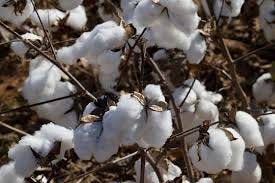Once upon a time, in a not-so-distant future, the United States government decided to cancel the production of cotton, citing its ties to the racist past of cotton plantations in the South before 1865. The decision came after intense pressure from woke activists who argued that continuing to grow cotton was an endorsement of the oppression and exploitation of black people.
At first, the news was met with disbelief. How could a simple crop be responsible for centuries of systemic racism? But as more and more politicians, celebrities, and influencers jumped on board the cancel-cotton train, the movement gained momentum.
The first step was to ban the use of cotton in clothing and textiles. Instead, manufacturers were encouraged to use synthetic materials that had no ties to America's racist past. This led to a surge in the popularity of polyester, nylon, and other man-made fabrics.
Next, the government announced plans to phase out cotton farming altogether. Farmers were given incentives to switch to alternative crops like soybeans, corn, and wheat. But not everyone was happy with the decision. Cotton farmers, who had been growing the crop for generations, protested vehemently, arguing that their livelihoods were being destroyed for no good reason.
But the cancel-cotton movement was unstoppable. In no time, cotton fields across the South were replaced with soybean and corn crops. And while the switch may have been good for the environment (cotton requires a lot of water and pesticides), it came at a huge cost to the economy.
As the years went by, the memory of cotton slowly faded away. Young people grew up never knowing the feel of soft cotton sheets or the comfort of a cotton T-shirt. Instead, they wore scratchy polyester and nylon clothes that made them sweat and itch.
But some people refused to forget. They remembered the beauty of cotton fields in full bloom, the gentle rustle of the cotton plants in the breeze, and the way the soft fibers felt against their skin. And they wondered if canceling cotton had really been worth it.
In the end, the cancel-cotton movement became a cautionary tale about the dangers of taking things too far in the name of social justice. And as for cotton? Well, it may never regain its former glory, but it will always be remembered as a symbol of America's complicated and painful history.







